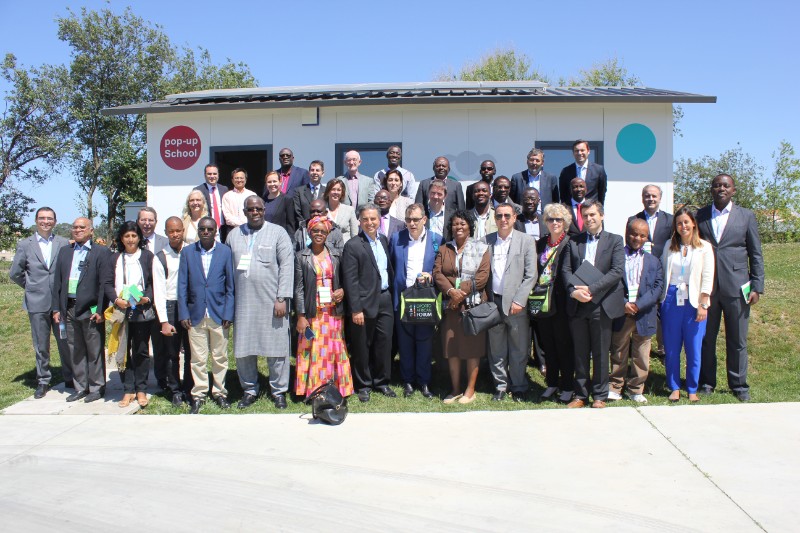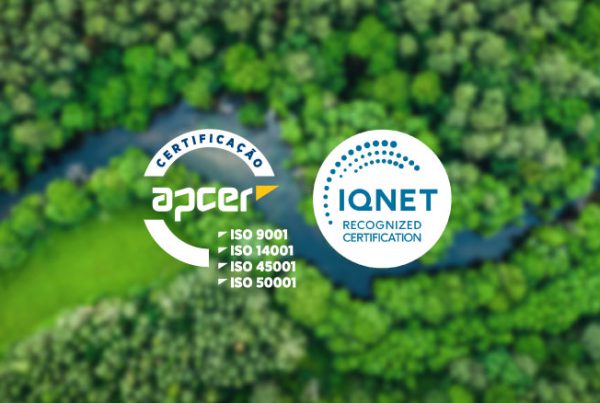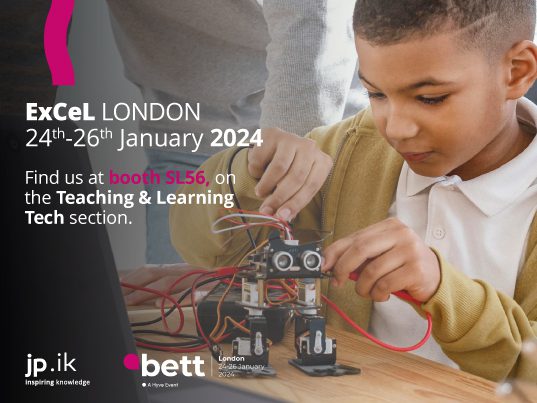This cluster is, therefore, made up of a group of representatives from various African countries, international and regional organizations and private sector partners.
On April 27th and 28th, Oporto African Forum was held at the Eurostars HeroÃsmo Hotel, in the city of Oporto, organized by jp.ik in partnership with GESCI (Global e-Schools and Communities Initiative).
GESCI is an international non-profit organization founded in 2003 on the recommendation of the United Nations Task Force on Information Communication Technology (ICT) at the first World Summit on the Information Society.
This recommendation of the United Nations ICT Task Force is intertwined with the fact that Education is understood as an area in critical need of development and in which ICT has the potential to have a positive impact.
It is, therefore, in this context that the Oporto African Forum was organized. Result of the work and joint effort of jp.ik and GESCI, this Forum was the second activity of the CESA Cluster (Continental Education Strategy for Africa) dedicated to the integration of ICT in Education.
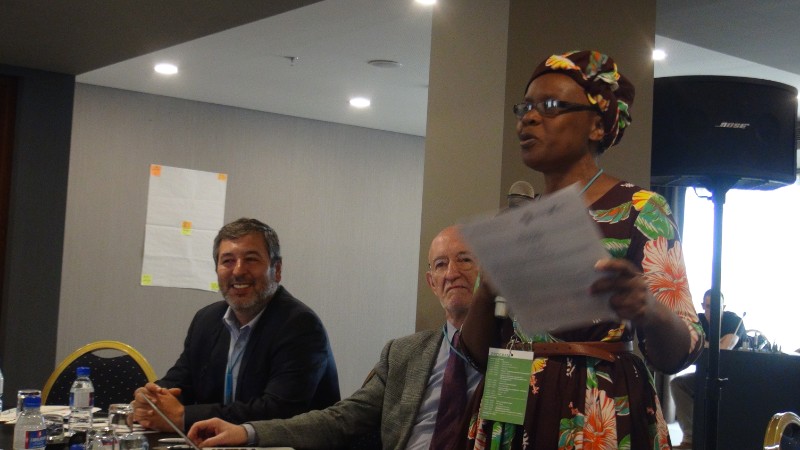
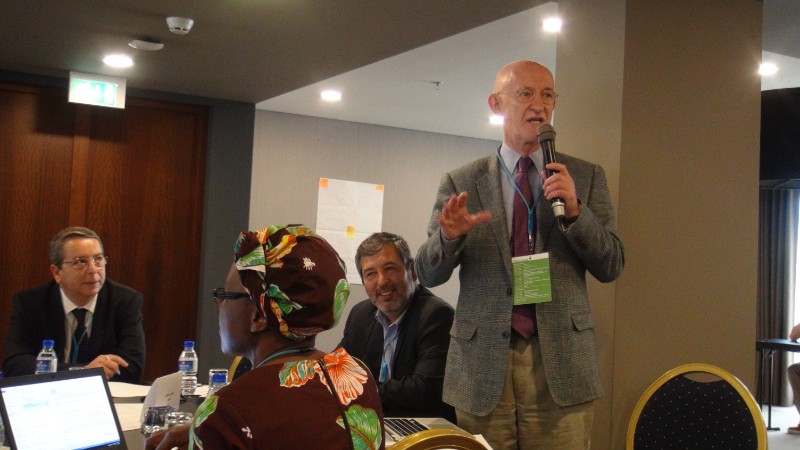
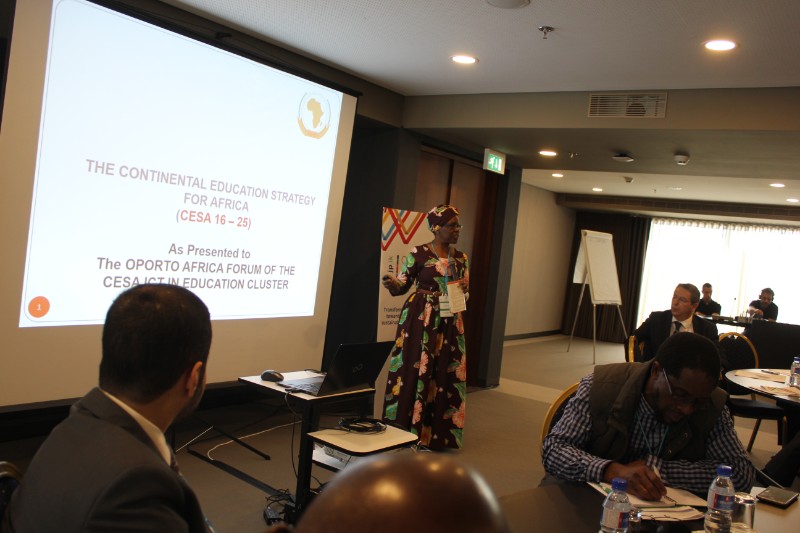
The guiding matrix of this Forum, which brought together government leaders from the fields of Education and Information and Communication Technologies of more than a dozen countries in the African continent, came to understand the implications of leadership and partnership in the design and implementation of Education national initiatives with a strong ICT component.
For this Forum, was selected the following theme “National Information and Communication Technologies and Policies to achieve development goals and implement the Continental Education Strategy for Africa: Leadership and partnership in the development and implementation of national initiatives”.
In this perspective, this Forum was conceptualized with the great purpose of analyzing, discussing and highlighting the importance of policy coherence and intersectoral coordination in information and communication technologies in education/ program development strategies, as well as the relevance of public-private partnerships and robust program management to ensure effective implementation.The design of the agenda of this two-day event was based on two essential components: theory, that is, conceptualization, and practice, that is, field visit. Thus, during the first day, workshops were held on topics such as leadership, coordination and coherence among the various entities involved in the implementation of a national initiative or the specifics of the financial model associated with this type of initiatives; also focusing on the distinct models of partnership.
This first day of work included the organization of four workshops. For these workshops, the following dynamic was considered. During the workshops, the participants were organized in groups of seven to eight elements. Each workshop was composed of three moments: presentations on the themes assigned to the workshops; roundtable debates, taking as its starting point the presentation’ s content; and sharing of conclusions with the other working groups.
The first workshop of the day was dedicated to the theme “Leadership and Vision for Knowledge Era” and featured a presentation led by Brian Gonzalez, General Manager, Global Education Sector at Intel.
At the beginning of his presentation, Brian Gonzalez recalled the urgency of responding to the following challenge – How can we transform the learning experience into a more relevant, engaging and impactful experience?
Brian Gonzalez drew attention to the need to create opportunities for young people. In addition, Intel’s Global Education Sector at Intel said today young people still face the nightmare of high unemployment.
Brian Gonzalez emphasized that today people are rewarded for the knowledge they have and for what they are able to achieve with that knowledge.
In this perspective, Brian Gonzalez concluded that ICT is a unique opportunity for Africa, since ICT are irrefutable catalysts for social, economic and cultural growth; industrial and economic development and inevitably for the development of education.
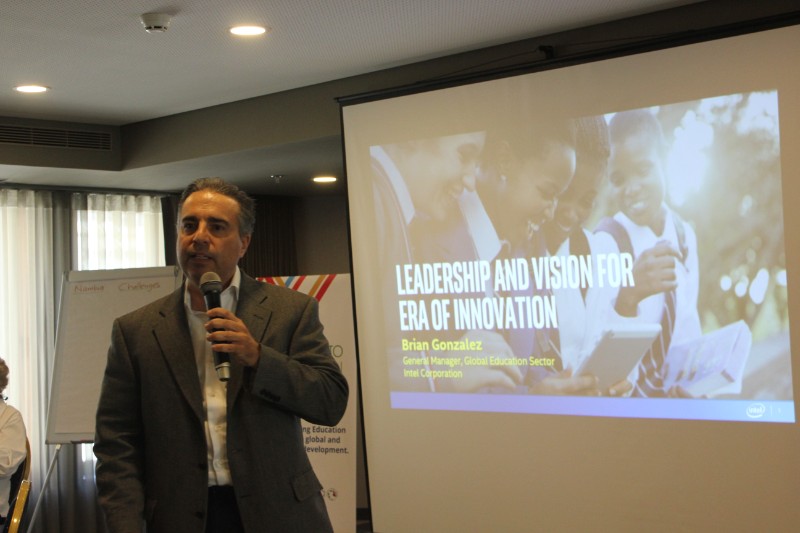
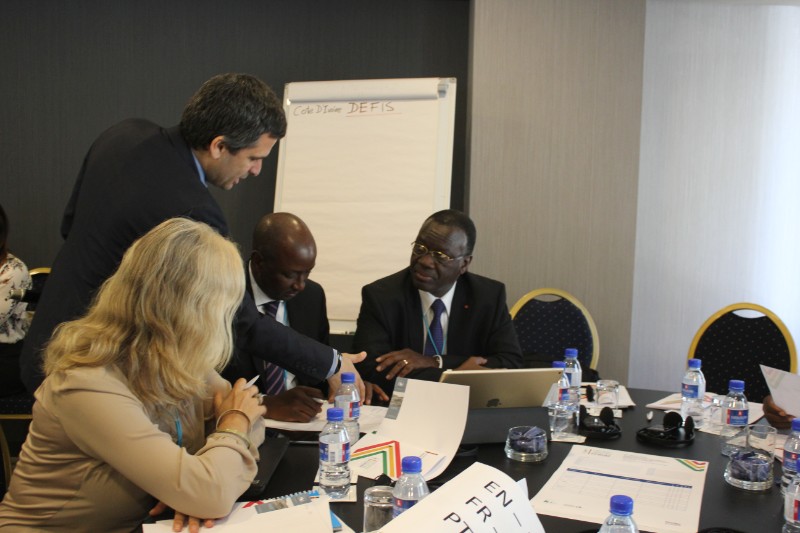
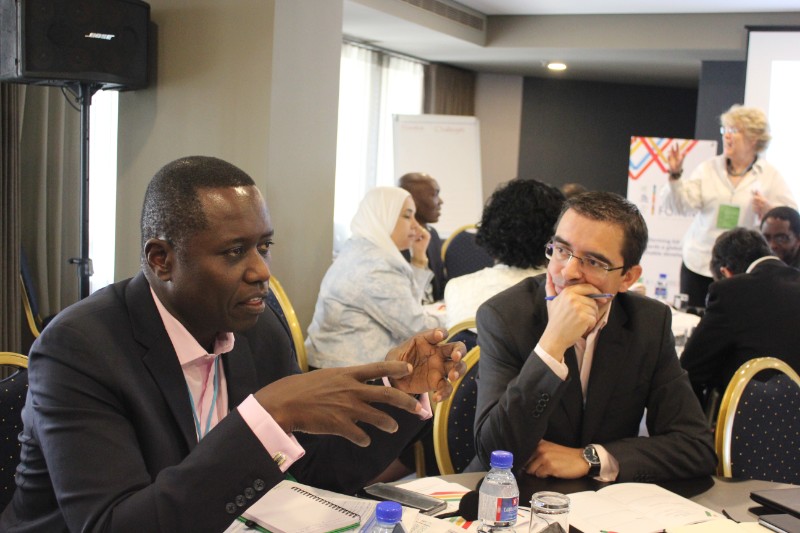
The second workshop entitled “Coordination and coherence – cross-sector collaboration to ensure implementation in line with strategic plans” was fostered by the presentation of the former member of the Portuguese Government Daniel Adrião. Daniel Adrião focused on the education model based on technology with the purpose of sharing the Portuguese example implemented in 2008 and whose concept was to provide laptops to students at very affordable prices.
The goal of the Portuguese project was based on massification, in other words, giving schools the opportunity to adopt, in mass, technological equipment (portable, interactive whiteboards and digital content). This was the starting point for a radically transformation of the education model.
One of the great challenges pointed out by Daniel Adrião in the implementation of national initiatives in the area of ​​Education is to be able to establish a common purpose and objective among the different entities involved in this type of projects.
Another very interesting point is related to the school program. Daniel Adrião stresses that the school program cannot be forgotten and must be considered, analyzed and framed from the outset in this type of initial initiatives.

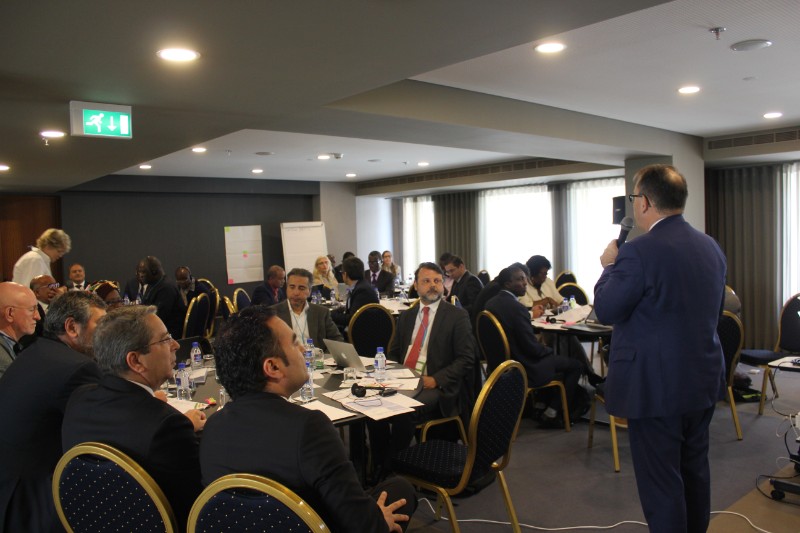

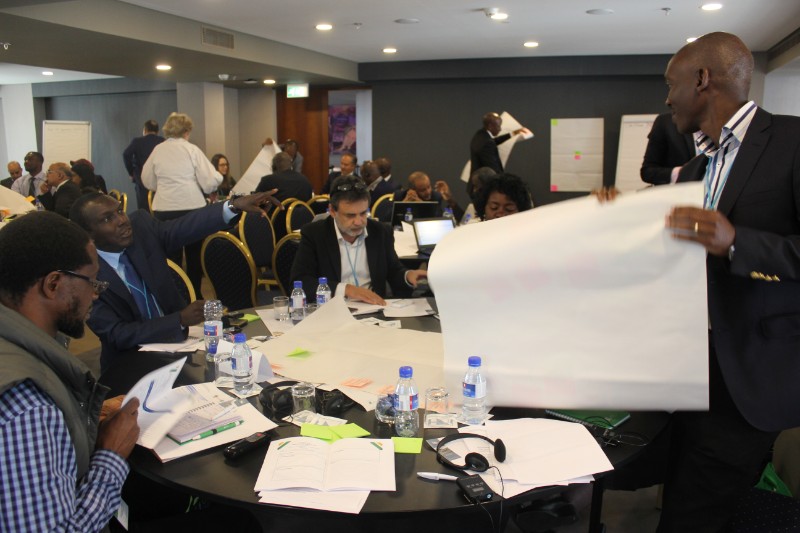

In his presentation entitled “eSchool Program”, the CEO of the Millennium@EDU Foundation shared that the great goal of the national initiatives dedicated to the integration of ICT in Education is based on the total transformation of the learning space.
The success of this type of project is catapulted by the definition of efficient, collaborative and coherent partnerships. In this context, Mário Franco highlights the importance of the integration of telecommunications companies in this type of initiatives.
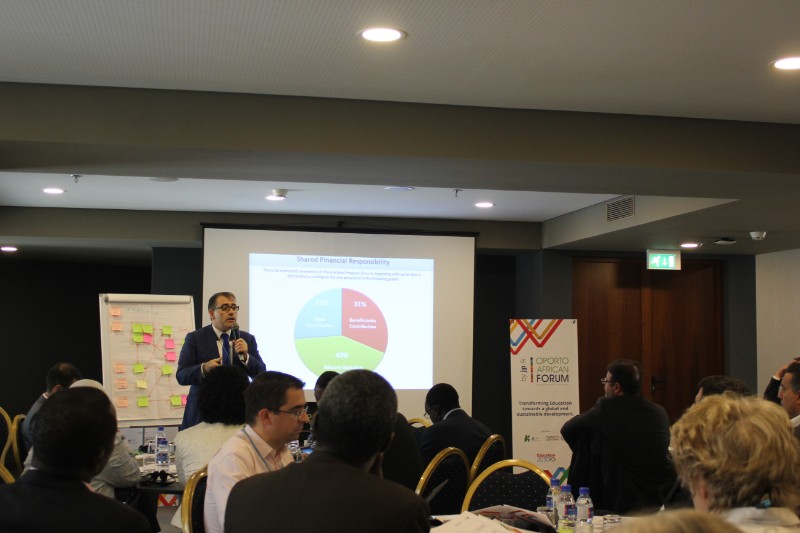
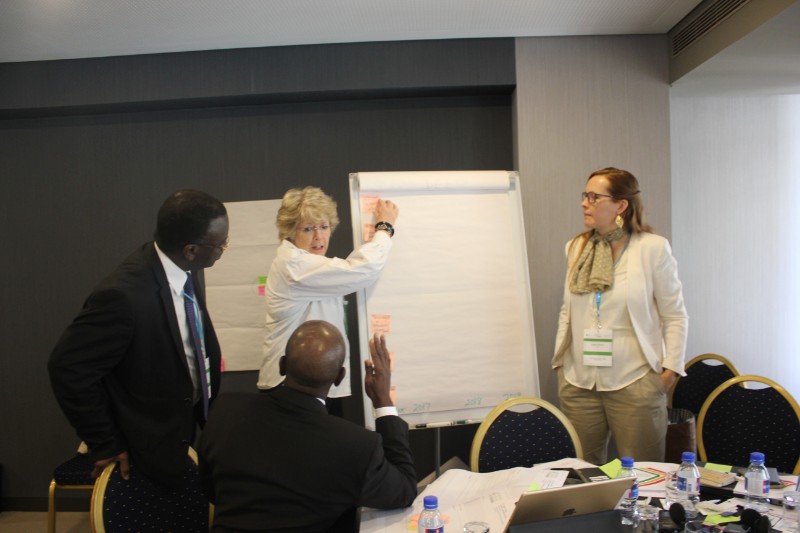

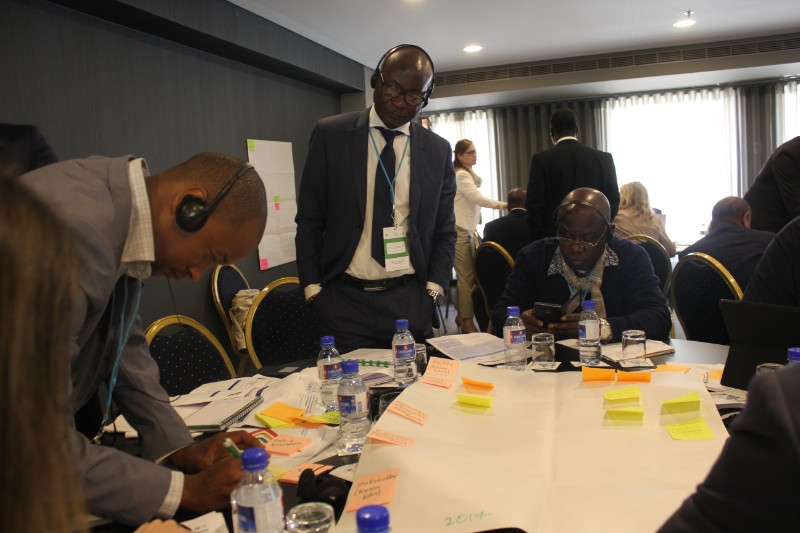
The CEO of ICTA highlighted the importance of adopting an irreversible ecosystem across the project. In this perspective, the ecosystem is designed based on four premises: learn, use, make and apply.
Each of these concepts defines the phases of the project designed for Kenya. The starting point is the training of teachers and other education agents, so that they are able to make full use of the technological resources at their disposal (learn). The second stage is to make the technological resources available to the general public (use). The next phase coincides with the binomial opportunity/ ability to assemble technological equipment (do). In turn, the last phase includes the ability to apply the knowledge, skills and resources available in real life (apply).
The implementation of this project aims the achievement of three different and evolutionary stages – the creation of “smart schools”, “smart industry” and “smart society”.
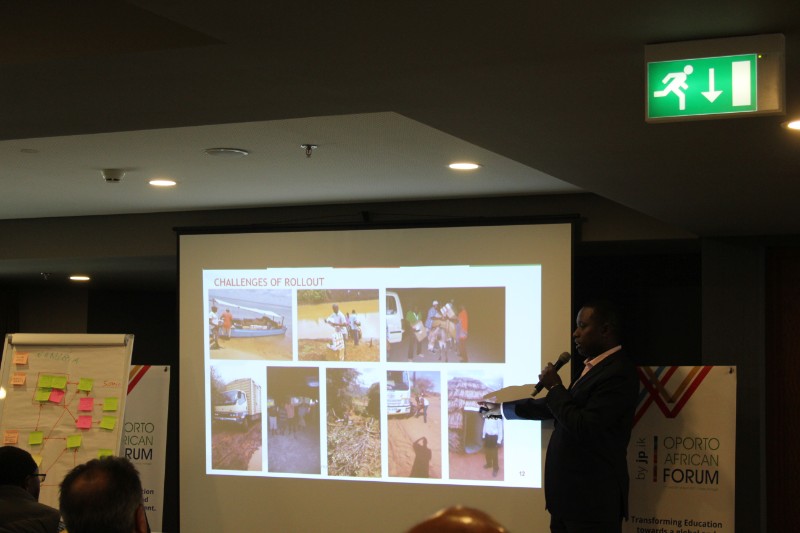


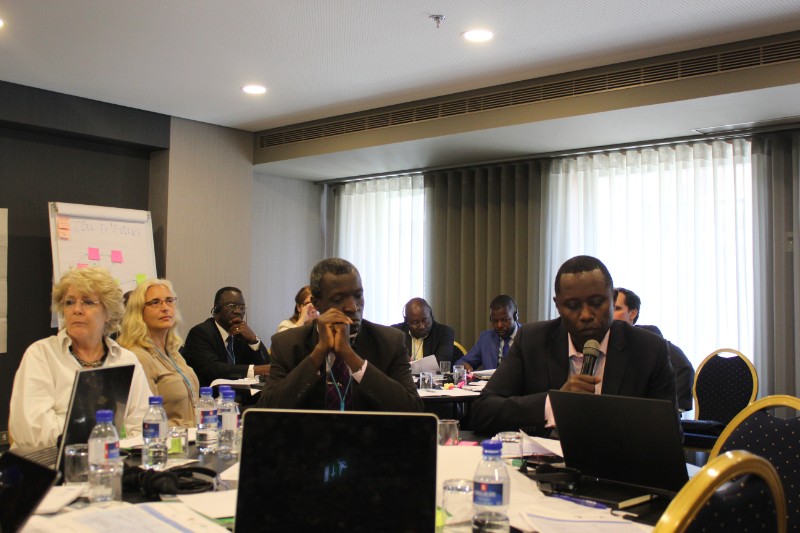
Jọo Felgueiras underlined how essential it is to respect and determine three core elements Рneeds, strategy and organized structure. First, it is important to define the needs to which the project must respond. At the same time, it is essential to define and implement the strategy, not forgetting the importance of evaluating its impact.
When talking about determining an organized structure in other words we are talking about identifying the extent and stages of the project, defining measurable objectives and determining the stakeholders.
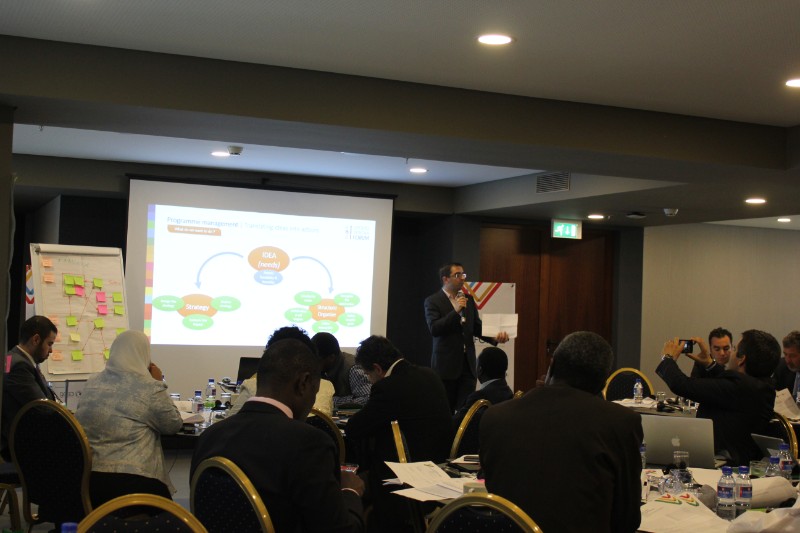
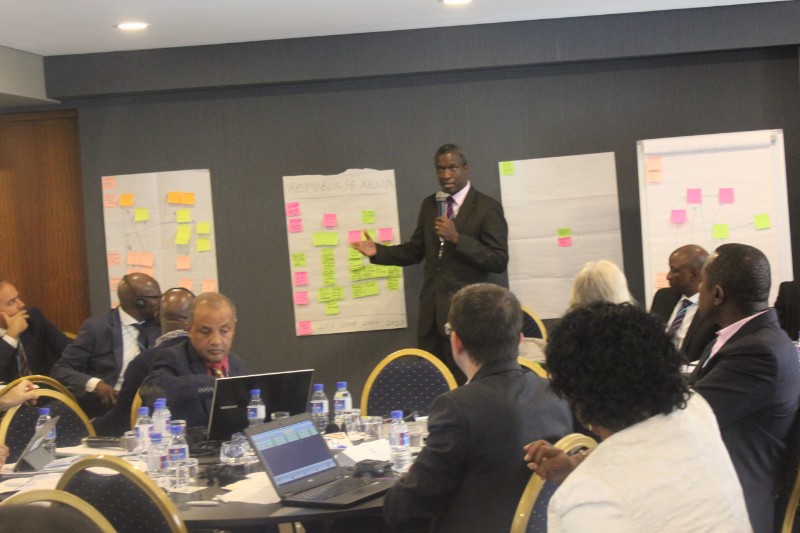

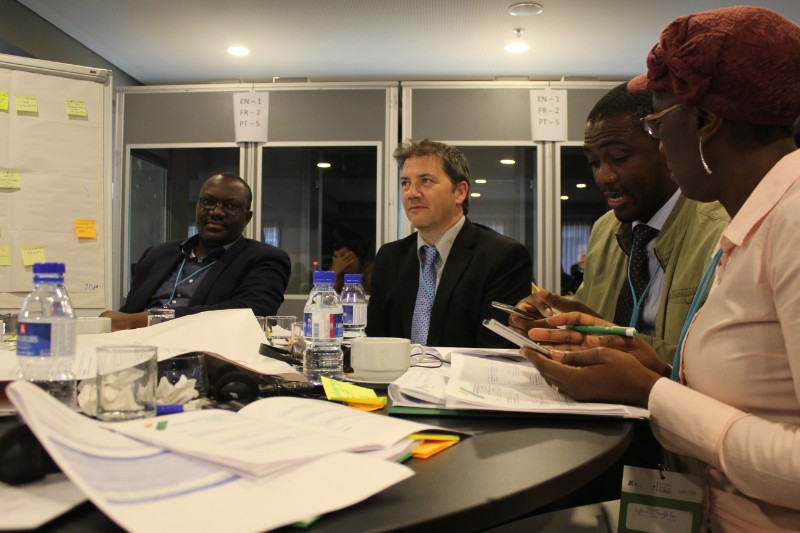
Through these two visits it was possible to show on the spot the diversity of solutions developed by jp.k and that are designed, taking into account the most diverse variables, such as the age range of the students, the specificities of the school or the typology and objectives of the Curriculum in which technological resources will be integrated.
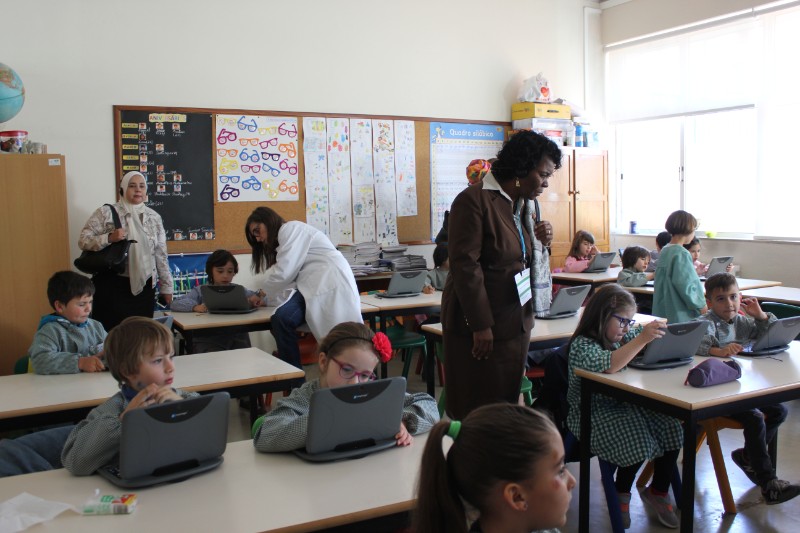
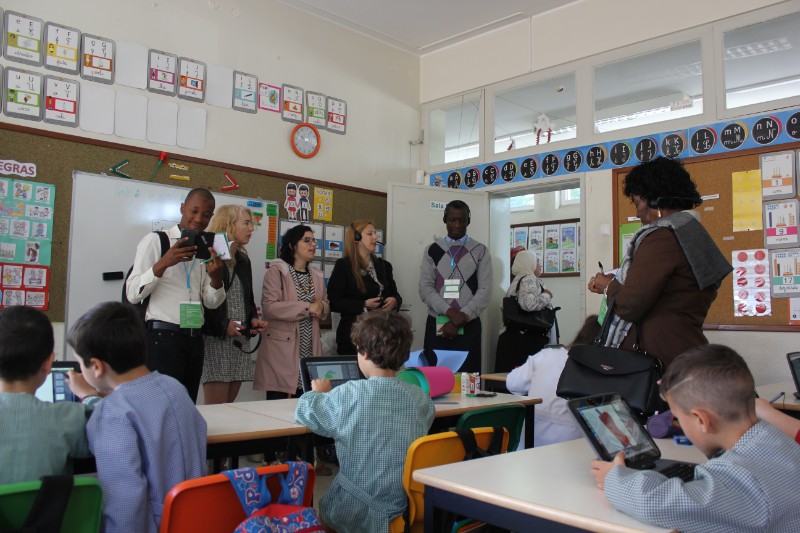
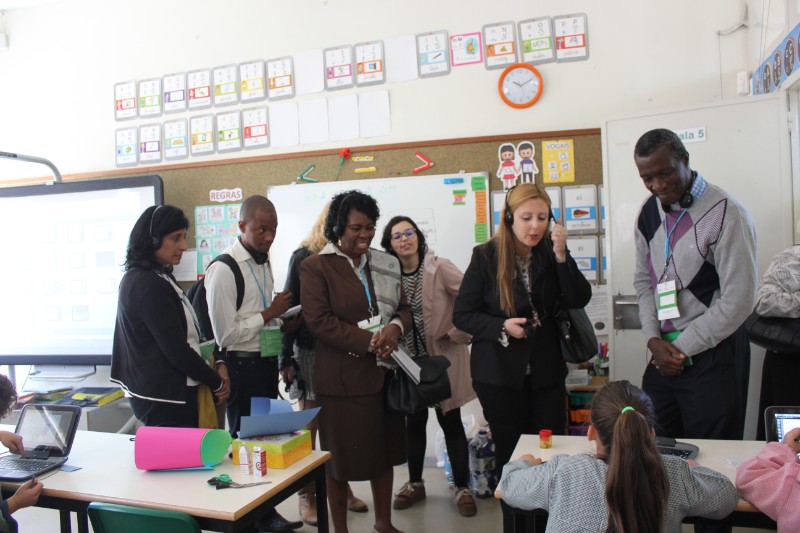
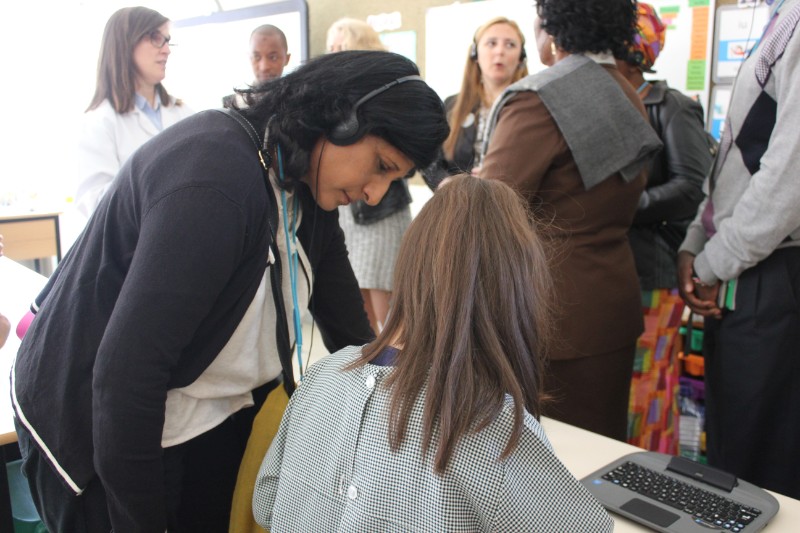
For the sharing of the experience developed by jp.ik over the last decade, it has been fundamental to present the ecosystem conceptualized by the jp.ik team and that sustains the life cycle of a national initiative of Education – from design to development and that is present in education projects implemented by jp.ik throughout the world.
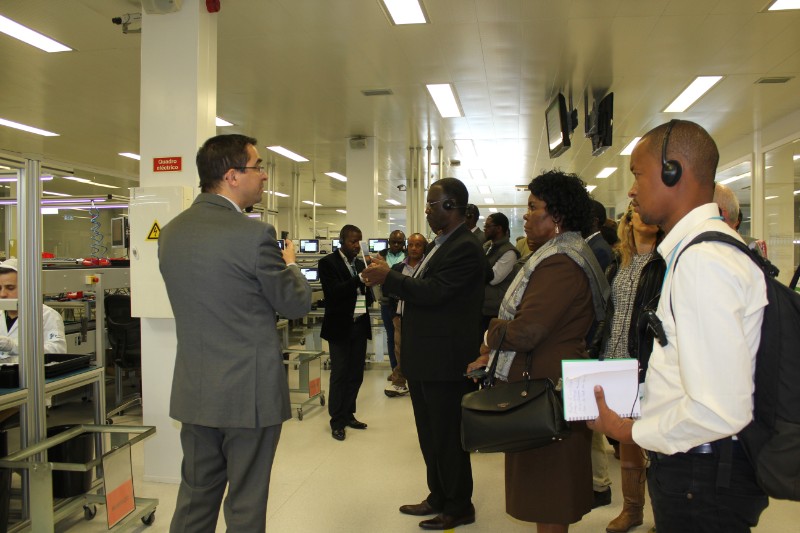
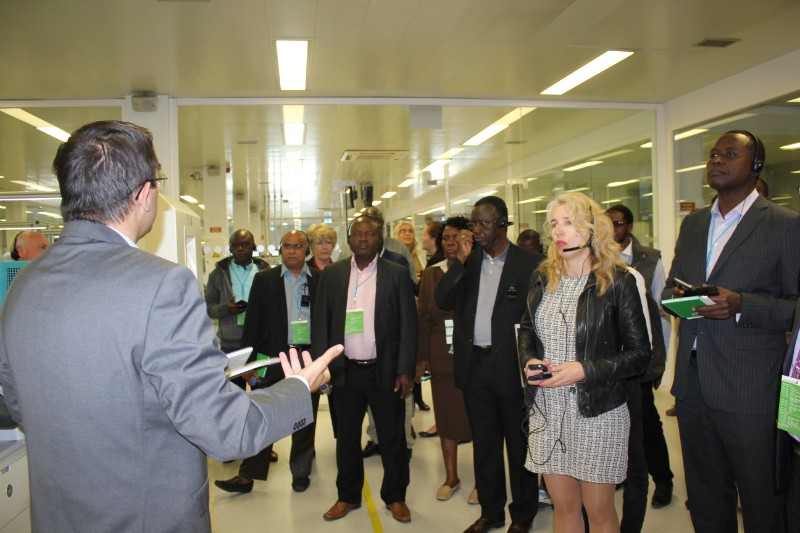
For example, Dr Beatrice Njenga, Director of Education, Human Resources and Technology Sciences and Commission of the African Union, points out that events, such as the Oporto African Forum, are excellent opportunities, as it “brings together various African government representatives who share challenges, priorities and goals for Education for the twenty-first century. In this new scenario, the coordination of national ICT initiatives within CESA is essential for transforming the sector and raising the learning experience. ”
“The Oporto African Forum was an excellent opportunity to discuss and share several points of view on the need and importance of good leadership, for the success and effectiveness in the implementation and integration of the Information Technologies in Education across the African Continent”, said Jerome Morrissey, CEO of GESCI.In sum, the Oporto African Forum was attended by 17 government representatives from ICTs and education from more than a dozen African countries, including Côte d’Ivoire, Democratic Republic of Congo, Equatorial Guinea, Ghana, Mauritius, Namibia, Kenya, Republic of Guinea, Senegal and Uganda. The Oporto African Forum was also attended by 16 representatives of Global Organizations and the Private Sector. The event was attended by ADEA, African Union Commission, Global Partnership for Education, IFADEM, Intel, IT Worx, Millennium @ EDU, UNESCO and UNICEF.
